
Steve Forbes: Massive Debt and the Stagflation Specter Gripping Our Economy
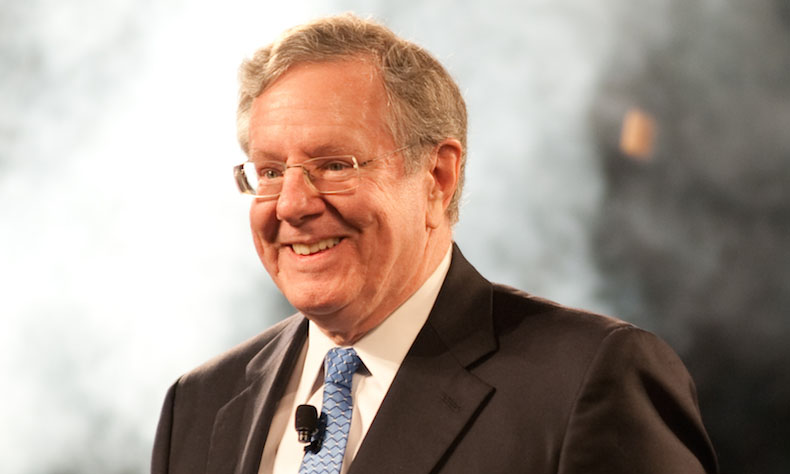
In a recent interview with Newsmax’s Jeremy Frankel, Steve Forbes, the Chair and Editor of Forbes Media, sounded the alarm on the escalating federal budget deficit under President Joe Biden, cautioning that it represents more than just paper money—it is the depletion of resources from the American people. Forbes, known for his sharp economic acumen, spoke candidly on “Rob Schmitt Tonight,” emphasizing the need to allocate resources to the hands of the American people, who can utilize them far more productively than the bureaucrats in Washington. He warned that the rise of political cronyism would be inevitable and detrimental to the economy.
Forbes expressed concern about the ongoing negotiations over the debt ceiling between the White House and the House GOP. While he predicted some concessions might be made, he expressed confidence that House Speaker Kevin McCarthy, a Republican from California, would not yield to President Biden’s demands. Forbes called for McCarthy to hold out on extending the debt ceiling until next spring, in order to hold the Biden administration accountable for its fiscal policies.
“So, you get a couple trillion this year. Not a lot, given the math in Washington, but it’s a start and also sets the stage for setting a base in the 2024 campaign,” Forbes remarked, suggesting that taking a firm stance on the debt ceiling extension would be crucial for future electoral campaigns.
Moreover, Forbes voiced his concerns over the defunding of the 87,000 new IRS agents that were introduced in the Inflation Reduction Act last year. He disapproved of the idea of burdening the middle class and small businesses with intrusive IRS agents, referring to it as “legalized extortion.” Forbes urged the House GOP not to back down on this issue and to firmly assert that the allocated funds should be removed from the budget.
Responding to House Assistant Democrat Leader Rep. Jim Clyburn’s suggestion that the Fourteenth Amendment could grant Biden unilateral authority to raise the debt limit, Forbes dismissed the idea as “preposterous.” He likened it to the actions of past tyrants who circumvented Congress, emphasizing the importance of upholding democratic principles and the role of Congress in matters of fiscal policy.
While concerns loom about the possibility of a default, Forbes remained optimistic, pointing out that the United States still has incoming funds that could cover essential expenses such as interest payments, Medicare, Medicaid, and military spending. He dismissed the fearmongering surrounding the situation, stating that there is more room for maneuvering than is commonly acknowledged. Forbes criticized the notion of raising taxes to resolve the economic crisis, emphasizing that such measures would only further harm the economy without generating substantial revenue.
In a thought-provoking article for Dailymail.com, Forbes delved deeper into the issue of inflation. He criticized the Federal Reserve’s decision to raise interest rates, drawing an analogy to a dentist performing a root canal on a patient with a heart condition. Forbes argued that such actions would not provide the desired relief but would instead exacerbate the problem.
According to Forbes, the underlying causes of inflation are primarily non-monetary, such as disruptions in the supply chain due to factors like wars, hurricanes, and pandemics. He urged policymakers to address these supply-side issues rather than solely focusing on demand-side policies. Forbes expressed concern that the actions taken by the Federal Reserve and the Biden administration, including burdensome regulations and restrictions on domestic energy production, are worsening inflationary pressures.
Drawing parallels to the stagflation era of the 1970s, Forbes highlighted the adverse impact on the average American family, including higher prices, rents, mortgage payments, and increased borrowing costs. He emphasized that making people poorer is not a viable solution to combat inflation. Forbes emphasized the need for the Federal Reserve to prioritize stabilizing the dollar and suggested a return to a gold standard or closely monitoring gold and commodity prices, as successfully practiced by former Chairman Alan Greenspan.
Furthermore, Forbes called for a reduction in taxes and regulations, urging the government to halt politically motivated spending sprees. He pointed to the positive outcomes of deregulation during the 1970s, highlighting President Jimmy Carter’s initiatives in the transportation sector, which revitalized industries and stimulated economic growth.
Forbes cautioned against condemning Americans to the malaise of stagflation experienced in the past. He advocated for fueling the engine of American business and revitalizing the economy. By empowering individuals with resources, reducing government interference, and adopting sound monetary policies, Forbes believed that the nation could avoid the pitfalls of stagflation and pave the way for a stronger, more prosperous future. As the economy faced mounting challenges, his words served as a clarion call to prioritize prudent economic management and ensure the well-being of the American people.



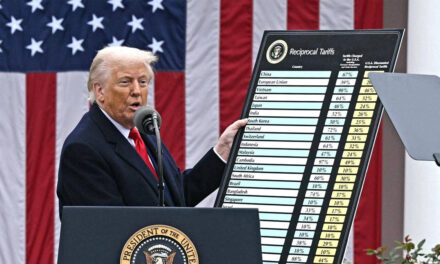


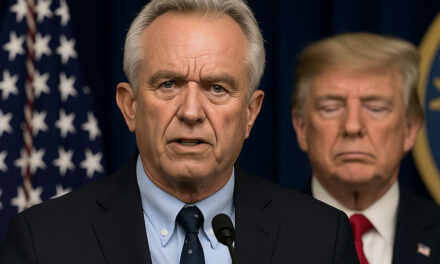





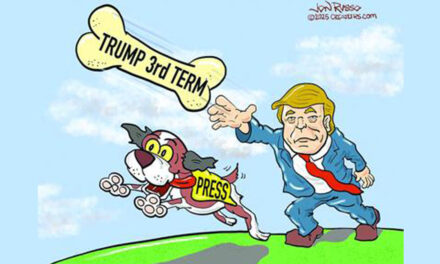
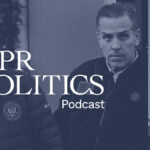




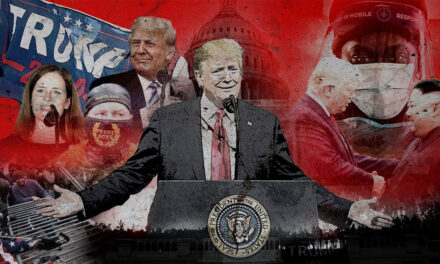







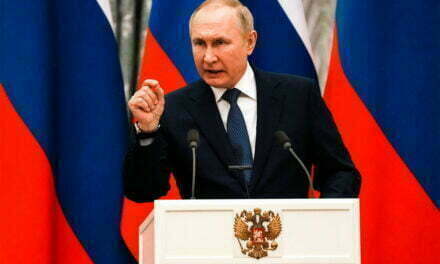
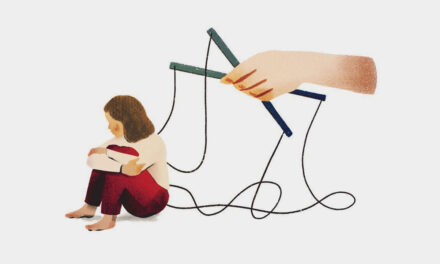
Steve Forbes has a good head on his shoulder and should make a likeable Presidential Candidate in 2024.
Forbes is a pretty smart guy, but not the ultimate authority. I do agree with 90% of what is claimed in this article as his words. I disagree with him on inflation in that I think he is over-downplaying the effect of loose monetary policy contributions to inflation and now stagflation. Back in the Carter years during stagflation is when I had my first home mortgage which came with a rate of 13.625 (that is 13 5/8)% interest. interest rates got as high as 17% before they began to tumble. It was killer but after stagflation came a gradually better economy and home values rose and interest rates went down and more homes were sold. This was under Reagan’s second term (not his first term), whom also believed taxes were too high and government interference were the main cause of slow growth. And back then we were also energy dependent on the Saudis. It was called Reagan-omics to unleash the power of the economy from stifling government regulation and red tape which Reagan hated. Mr. Forbes cut his teeth during this period and is a firm Reagan-omics guy. I disagree with Mr. Forbes on cutting taxes because the last time we cut taxes under Trump, we added over 800 billion to the national debt to do it. Reagan cut taxes that were much higher than today, and he did it with much less national debt so he did not have to worry about adding a little to the debt. I think we should hold or slightly increase taxes to match a decrease in spending and achieve an equilibrium point for the economy where it can sustain growth at a monitored rate.
The smartest economist I ever heard, and I forget his name, said we should increase taxes as a way to modulate high growth periods and deposit that money (and not spend it) and wait for the inevitable downturn to release the money and re-stimulate the economy. And during low economy ebbs, we should release the money we saved by taxes during the high growth period. This is the best way to provide stability.
Frank Stetson, what do you think?
I think raising and lowering taxes to modulate the economy around a set GDP target of 3-4% growth is a better way of modulating the economy that dicking around by the Fed with interest rates. Biden allowed Janet Yellen and the Fed to be asleep at the wheel while driving our economic bus. Lets stop the big Omnibus budget packages and do actual individual budgets bills, about 12, for the economic sectors and establish GDP targets in each bill that are SMART (systemic, measurable (and manageable) , actionable (specific steps to be taken), realistic (not pie in the sky but can actually be accomplished) , and time bound (not open ended), to the budget cycle. The problem is the big Omnibus packages allow for a lot of pork and unnecessary spending that negatively affects the economy. Lets get our budgeting process back to making sense!
Frank Stetson, what do you think?
Yes, this LONG tome is a bit of a rant, but it is not a screed. I have never scored a screed yet…except in the mind of Horist :>)
As a vetted member of NJ royalty, I have to respect Steve Forbes even if the pablum he sometimes shared is served on a silver spoon. He is a very competent business manager many time over. Hey, the guy is born in Morristown, probably in my favorite Hospital, grew up in Far Hills, our home of the steeple chase, did grade school, private of course, with Christie Todd Whitman, and, like Whitman, he’s the kind of conservative that could be NJ governor — easily. Sure, he’s a twice failed national candidate aiming too high with too small a caliber. He reminds me of Prince Charles — affable, humble, nice guy, mostly upstanding, but sort of droll. He is modest, not sure he’s worth more today than he was in 1990, but turned his magazine into an empire, ushered in the internet age very, very well, in publishing, sold a major share in Hong Kong but remains as editor in chief. Like Biden, the man loves the train, and even drives a normal car, I think, still. He could easily be your friend, but our leader — not nationally. That’s OK, I wish he would run for NJ governor, would love to see what he might do.
That said, his flat tax is flat earth policy IMO, so I am not 100% on board with his economic theories, but I can respect his beliefs and his acumen. Likewise, on this one, his premise of stagflation is bogus if for one reason, my economic truth of all truths: wherever you are in the economy, you have never been here before. We will not repeat stagflation at this time, probably ever.
I am 100% on board with Trump’s debt being our YUGEST economic peril as the debt is mostly Trump, in that Trump owns 25% of it with his brilliant tax cuts gone wild and the double whammy of necessary covid spending. That’s the main reason we have too much money. And too much money almost always means inflation.
Trump says we can default on the debt, no problemo. Earlier he has said we can “renegotiate” our debt. No problemo either. BULLSHIT. He has not a clue and wants to run a sovereign nation like his family business. Different model dude.
Donald Trump started his spending spree by spending more than any other President in the nation’s entire history, in his FIRST YEAR of office: $4.1T which he topped in his second year at $4.5T only to hit covid for $6.6T in his third and topping out at $7.3T. It’s easy to lie about the bestest economy ever when you’re given it away. He invested in very little, it was all a lights n buzzers show for the masses.
Biden’s first year began the tapering at $6T which he hopes to match this year. So, tell the truth Forbes, he’s trying to turn down the heat, but you don’t go total cold turkey without suffering physically. BUT he needs to keep turning that heat down and a second-year match followed by modest spending increases is wrong-headed blue sky thinking that the future, estimated, GDP will cover —- same stupidity Trump sold the nation on. It never happened under Trump. Biden’s infrastructure and IRA investments won’t provide those results that fast either. Unlike Trump’s tax cuts and hot air, Biden’s actual real investment programs will provide results, but not in this Presidential term.
That said, without serious GDP growth, another serious Trump weakness as he holds the record for worst GDP growth since Hoover the suckwad, the current Biden plan shall not work. And Biden, without a miracle, just does not have enough gas in the tank to pull this off: IMO. However, unlike untax, spend, and borrow Trump, at least he’s trying.
That said, I agree with Forbes that debt is important, to the point that it is the most important point to focus on — above and perhaps in lieu of, all others. There is no way we can “make it up with volume,” we need to cut too. I applaud House Republicans for saying so, being bold about it, and condemn them for how they are trying to do it. This is worse than the Dem’s pulling the nuclear option under Reid and the result of that procedural debacle. Using the debt ceiling to manage budget is like trying to cure acne with a guillotine; sure, it will be gone, but what will be left? And it creates yet another procedural debacle.
I am not a big believer in debt as a number target; I favor the debt/GDP ratio as the better metric. Like when you take a mortgage, you look primarily at what percentage of your income it eats, (so you can still eat), the debt/GDP metric is that kind of measurement. No one really knows when it hits the failure point, failure will be defined as investors going somewhere else and no one knows that, but it was imagined to be 100%. What we discovered was, for now, investors have no where else to go that’s as safe as the US. Soon, they may have China. The debt ceiling shenanigans could change all that, it’s a risk not worth taking just because Republicans like a Mexican standoff. We crossed 90% for the first time since WWII in 2012 under Obama in The Great Recession, got scarred, pulled back, and then cleared it in 2019 with Trump BEFORE covid. In 2020, under Trump, we hit over 126% meaning our debt was bigger than our take-home. Today we are at 107% and while I would say “good job Joe,” it’s just not good enough. We need to be below 100% ASAP if for no other reason than to prove we know what we are doing.
Trump is a useless rubber to suggest we can default or renegotiate our debt. The House is insane playing with our debt ceiling. It’s not a Mexican standoff, it’s Russian roulette with 6 chambers loaded.
In God We Trust: that’s the foundation of our fiat money economy. Without trust, even God can’t help your fiat money value. IF investors pull out of Treasuries, everything we have ever seen, including The Great Depression and the tame-by-all-accounts Great Recession will be eclipsed by the human suffering. Remember how you cried during The Great Recession? Gas lines, shortages, fear. Can you even imagine living through The Great Depression? When the dollar collapses, you ain’t seen nothing yet. You will need your guns for sure because it will be total chaos.
I make my money now re: investing. Not a genius, but I am competent. I have been retired since I was 56, by plan and I may be modest in lifestyle, but I live OK. If we default, I may be worth $0 overnight, there’s absolutely nothing I can do about it, and the scant money I will have won’t buy much, if anything. It could all just stop. Think you can just buy some gold? How much is gold worth when you can’t find food? Think I am crazy — look around — find failed economies and see how they live. And then consider: that’s NOTHING compared to the dollar’s collapse.
Wherever you are in the economy, you have never been there before and we will be breaking new ground, ground where the dollar has little value, if any.
So yeah, I am with Forbes on the debt, and feel it should be our main focus with anything else taking a lower priority. I have been there for over a decade starting with Obama.
But stagflation — won’t happen, not like that. First, his point on the Fed is valid. At it’s core, inflation is simply the fact there is too much money. Trying to control too much money by adjusting the cost of a loan is going the long way around the barn. But Forbes, and anyone else, does not have a better idea, so there it is. Second problem is we can’t define “too much money.” That makes going long way around the barn hard to forecast when you should start walking, fer sure. Right now, there’s plenty of supply, lowering regulations can lower prices, increase supply, but that can just result in having more money — which is the problem to begin with. Freakin Trump flooded the market with dollars, including his shameful 2020 Christmas gift that he couldn’t deliver until 2021, idiot. Biden doubled down to get elected, and here we are. The worst may be over, we still, as always, need to focus on the debt.
Perhaps Forbes is right, we have more time, we have wiggle room to negotiate the debt ceiling. Probably is right. However, wherever you are in the economy, you have never been here before. And if In God We Trust falters, it will fall faster than a Florida high rise with a rotten foundation. And like that tragedy, we will be sleeping comfortable in our beds and never even see it coming and then: poof — it’s all over.
And so, the Republicans seem to be smoking something that MTGreene brought in, demanding way too severe cuts and slamming it up against our possible default. McCarthy will cave and then we will see what the assholes in the House will do with that. Probably a given that they will get some cuts which sets up the Debt Ceiling as being our MAJOR mechanism for funding the nation: Mexican Standoffs. May be the right thing, but totally wrongheaded way to do it. These fucks in Congress have budgeting as the main reason they are there. Once again they have proven they don’t have a clue how to do the job, how to get things done. And they are playing with a napalm firebomb pretending it’s only gasoline. FIRE THEM ALL, get some responsible politicians on the job, lower the freaking debt, and let’s get back to work improving America. Not pissing in the wind for a fox news soundbite.
When it comes to cuts, the first one is easy. Just look at discretionary budget, find the biggest one, and start cutting. It’s defense. After that, it’s Medicare where we can make it operate like Social Security rather than be an open checkbook pulling down the General Tax Fund. After that, the funds get smaller, thus the savings returns get smaller, but nothing should be sacred. Frankly, I am pissed off enough that I might just conclude — xx% across the board and let the managers figure it out. Like every account — drop 10%. A hatchet instead of a scalpel which is not my preferred mechanism, but at this point I think we can say: WTF. It’s that serious, that bad, IMO, Forbes got the most important point correct: it’s the debt, stupid. Not the spending, not the tax cuts, —- it’s the debt.
But blaming Biden for too much spending? The former idiot-in-chief made Biden look like a Tijuana beggar three blocks back from the main drag.
I agree with most of what you said Frank! Why do conservatives argue and get so nasty when I point out to them that Trump started the economic problems by flooding the economy with money?
I still think that trying to manage the economy when you have too much money in the economy by raising interest rates is not as effective as tax increases which pull the money out of the economy faster. Like I said, raise taxes when the economy is good, bank that money, then when the economy goes into the inevitable down cycle then release the money you saved up – this should keep the economy more stable. Raising interest rates may stop borrowing but it does not seem to me to pull much money out of a money-bloated economy.
Thanks for the info on Forbes. Like you I respect him too but I am skeptical of some of the things he says on this one. And I do not think Biden is on the right track either. But I enjoyed your pimple comparison to a beheading!!! Maybe that’s why some Muslims like beheadings, because they can’t get Clearasil.
I am actually a conservative when it comes to the deficit, and do have concerns about how it affects the national debt. However, Steve Forbes approach to reducing the deficit comes from a very rich man who does not look at history. The tax cuts that we had under Reagan were probably desirable (however they did start the increasing income inequality that we are seeing today), but every tax cut since has been totally unnecessary and added to the deficit and national debt. Biden proved that giving money to the working class does a lot more for the economy than any tax cuts for the wealthy. Unfortunately his landmark stimulus legislation came at a time of severe supply chain disruptions and exacerbated an inflationary spiral that was already under way due to the pandemic. The tax cuts enacted under trump should all be repealed. It is time for our legislators to focus on improving the working man’s life, rather than the rich, which will decrease the deficit (remember when we had a budget surplus before bush 2 cut taxes again?). We can do that, but apparently only if we get rid of the stupid people who control Congress now…
Well this happens every time there is a Democrat president.
MSGLeo: 25% of the entire US debt was caused by one man, in four years, Donald J. Trump. He bet on greater than 4% GDP growth to give back all those tax dollars. He got the worst GDP growth since Herbert Hoover and The Great Recession. IOW —- he printed free money, told you the economy was great, and it was a balloon that popped on Joe’s watch.
TRUMP owns the the lion’s share of the national dept racking up the worst numbers in four years that others could not match in 8 years.
Bush JR is one of the other big spenders. Neither of these schmucks are Democrats.
Printing money and giving it away is popular, but not responsible stewardship of our economy.